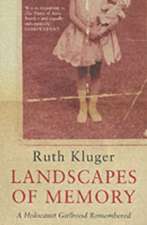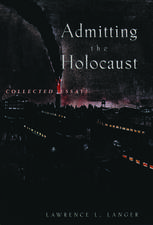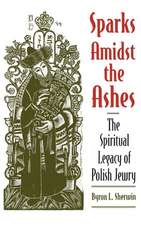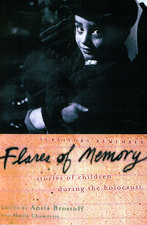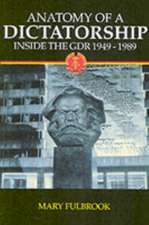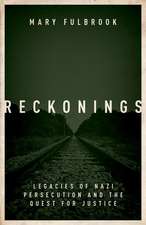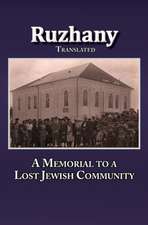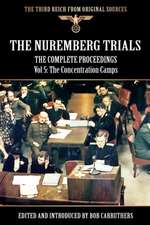A Small Town Near Auschwitz: Ordinary Nazis and the Holocaust
Autor Mary Fulbrooken Limba Engleză Paperback – 26 sep 2013
Preț: 130.16 lei
Preț vechi: 148.06 lei
-12% Nou
Puncte Express: 195
Preț estimativ în valută:
24.91€ • 25.91$ • 20.56£
24.91€ • 25.91$ • 20.56£
Carte disponibilă
Livrare economică 13-19 martie
Livrare express 07-13 martie pentru 45.83 lei
Preluare comenzi: 021 569.72.76
Specificații
ISBN-13: 9780199679256
ISBN-10: 0199679258
Pagini: 448
Ilustrații: 15 black and white halftones, 4 maps
Dimensiuni: 135 x 216 x 21 mm
Greutate: 0.47 kg
Editura: OUP OXFORD
Colecția OUP Oxford
Locul publicării:Oxford, United Kingdom
ISBN-10: 0199679258
Pagini: 448
Ilustrații: 15 black and white halftones, 4 maps
Dimensiuni: 135 x 216 x 21 mm
Greutate: 0.47 kg
Editura: OUP OXFORD
Colecția OUP Oxford
Locul publicării:Oxford, United Kingdom
Notă biografică
Mary Fulbrook is Professor of German History at University College London. She has written widely on modern German history, including A Concise History of Germany (1990); A History of Germany 1918-2000: The Divided Nation; (1991, 2008); German National Identity after the Holocaust (1999); Anatomy of a Dictatorship: Inside the GDR (1995, also published by Oxford University Press); and The People's State: East German Society from Hitler to Honecker (2005). Her most recent book is Dissonant Lives: Generations and Violence through the German Dictatorships (Oxford University Press, 2011). A fellow of the British Academy, she is former Chair of the German History Society and a member of the Academic Advisory Board of the Foundation for the former Concentration Camps at Buchenwald and Mittelbau-Dora.

